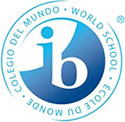Academic Honesty Policy
Robinson Secondary School Academic Honesty Policy 
First offense: If a student cheats on a major assessment, they may retake the assessment within 5 school days with the following penalty:
-
Maximum grade of 70% of the grade on retake
- After-School Academic Honesty Detention*
-
Student will be placed on a one year long probation for all honor societies
* Academic Honesty Detention entails a 1.5-hour detention in which the student would be required to complete academic dishonesty curriculum/assignment(s)
Second offense: If a student cheats on a major assessment, they may retake the assessment within 5 school days with the following penalty:
-
60% of the grade earned on the retest
-
Saturday school detention
-
Student will be dismissed from all Honor societies. If a student is not yet a member of an honor society, they may not apply to be a member for the next school year
Third offense and subsequent offenses: If a student cheats on a major assessment, they may retake the assessment within 5 school days with the following penalty:
-
No retake possible
-
Up to two days of ISS
-
Student will be prohibited from applying to SGA or any other school leadership role for the next academic year
Honor societies
-
Students can apply with only one offense, but only for probationary status
-
Probationary period lasts for the remainder of the school year
-
If a student is late to a required meeting, does not complete service hour requirements, or suffers another malpractice infraction, that student is then dismissed from the honor society
Minor assessment incidences of malpractice
-
Minor assessments include formative or informal assessments, classwork or homework
-
Malpractice within minor assessments will be handled within the classroom by the classroom teacher
-
Class grade consequence will be a 50% for that assignment
-
Teachers will inform parents of malpractice via email and cc grade level administrator
-
If a student accumulates 3 separate instances of minor assessment malpractice, he/she will then be moved to the first major offense consequence status.


